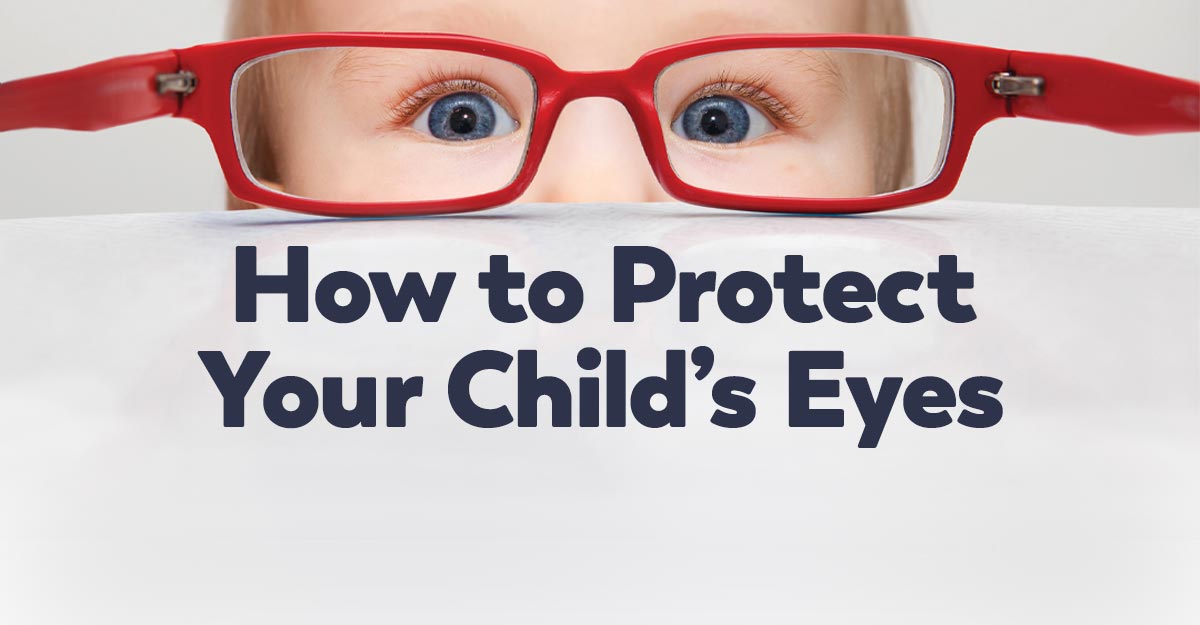Your eyes are an excellent barometer of your visual and general health. In fact, many illnesses have a surprising effect on the eyes. Paying attention to changes in your eyes and vision can help you ensure that you receive the treatment you need. These five symptoms may indicate that you have a health problem.
Blurred Vision
Blurry vision can be an early sign of diabetes. The problem occurs if the blood vessels in your retina leak or if high blood sugar levels cause fluid to leak into the clear lens located behind your iris. As the lens swells, it becomes more difficult to focus, and your vision starts to blur. Other causes of blurred vision include:
- Stroke
- Brain hemorrhage
- Lupus
- Migraines
- Preeclampsia
- Psoriasis (if it affects your eyes)
Optic nerve inflammation may also be responsible for blurred vision. Your optic nerve carries impulses from the retina, a layer of cells that line the back of the eye, to the brain, where they are interpreted as images. Optic nerve inflammation is often one of the earliest signs of multiple sclerosis. It can also occur if you have syphilis, Lyme disease, shingles, cat scratch fever, herpes, mumps or measles.
Blurred vision caused by bulging or narrowing retinal blood vessels can be a sign of high blood pressure, which can raise your risk of heart or kidney disease. In a study that appeared in the Journal of the American Medical Association, researchers reported that people who had blood vessel abnormalities were twice as likely to develop congestive heart failure.
Sudden Change in Vision
Sudden changes in vision should never be ignored. Sudden blurred vision can be a sign of glaucoma or age-related macular degeneration, a condition that affects your central vision. Dark spots in your vision can be a sign that your retina has begun to detach from the back of your eye.
Night Blindness
Night blindness makes it difficult to see in low light. If you have the problem, you may have trouble seeing well enough to drive at night or may find it difficult to walk without bumping into things when you make a midnight trip to the bathroom. Night blindness is more likely to occur if you are nearsighted, have diabetes, or have certain eye diseases, such as glaucoma, cataracts or retinitis pigmentosa.
It may also be a problem if you have a vitamin A deficiency. Although the deficiency is not common, it can occur if you have difficulty absorbing the vitamin due to gastric bypass surgery or a liver or pancreatic disorder.
Rings
A white or yellow ring around your irises can be a sign of high cholesterol or high triglycerides. Rings are not uncommon in older people and do not necessarily mean that you have high cholesterol. When they appear in people who are 45 or younger, high cholesterol is often to blame.
Bulging Eyes
An overactive thyroid gland is the cause of most cases of bulging eyes. It’s often triggered by Graves disease, a condition that causes swelling in the tissues behind the eye. Less common causes of bulging eyes include cancer, leukemia and infections. Bulging eyes are not just a cosmetic problem. They can cause decreased or double vision, headaches and eye pain.
Yearly eye examinations help protect your visual and general health. Call us today to schedule your next exam.
Improving your eye health can be as simple taking a few supplements along with regular eye appointments. These options are all good choices.
Vitamin B Complex
The complex contains eight B vitamins that may reduce your risk of macular degeneration and help you avoid changes in the blood vessels in your retina.
Vitamins E and C
Are you concerned about developing cataracts? Taking a daily dose of vitamins E and C can reduce your risk.
Lutein and Zeaxanthin
Researchers discovered that taking a multivitamin that contains lutein and zeaxanthin daily can help you avoid central vision problems caused by age-related macular degeneration. The supplements reduce the risk that age-related macular degeneration will progress to the advanced stage.
Vitamin A
Vitamin A is needed for good night vision and also helps boost your immune system.
Omega-3 Fatty Acids
Omega-3 fatty acids offer a variety of health benefits, including lower triglyceride and blood pressure levels, reduced inflammation and reduced risk of depression and anxiety. The supplement also reduces your risk of dry eye and macular degeneration.
Sources:
American Optometric Association: Antioxidants and Age-Related Eye Disease
http://www.aoa.org/patients-and-public/caring-for-your-vision/nutrition/antioxidants?sso=y
Mayo Clinic: Optic Neuritis, 11/04/16
http://www.mayoclinic.org/diseases-conditions/optic-neuritis/symptoms-causes/dxc-20263591
Business Insider: 9 Things Doctors Can Tell About Your Health Just By Looking At Your Eyes, 09/22/14
http://www.businessinsider.com/signs-of-disease-in-the-eyes-2014-9
American Academy of Ophthalmology: Your Eyes Could Be the Windows to Your Health, 12/03/14
http://www.aao.org/eye-health/tips-prevention/diagnosing-systemic-diseases-eye-exams
Prevention: 10 Things Your Eyes Say About You, 11/18/14
http://www.prevention.com/health/healthy-living/health-clues-your-eyes-inflammation-diabetes-and-more
Journal of the American Medical Association: Retinopathy and Risk of Congestive Heart Failure, 11/05/05
http://jamanetwork.com/journals/jama/fullarticle/200097
All About Vision: How to Boost Your Diet and Nutrition to Protect Aging Eyes, 01/16
http://www.allaboutvision.com/over60/nutrition.htm






